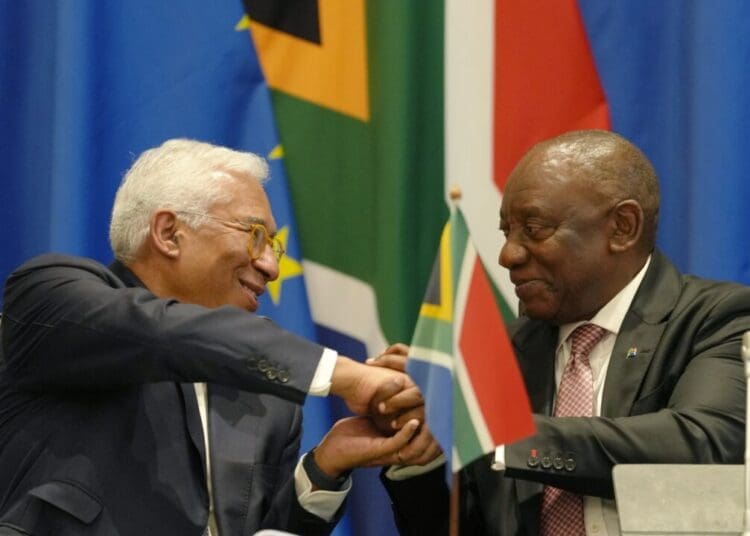South Africa’s small businesses may soon find themselves plugged into new global value chains following the signing of a Clean Trade and Investment Partnership with the European Union.
The agreement positions South Africa as a key partner in clean technology production, minerals processing and renewable energy manufacturing, with explicit commitments to grow local industrial participation.
European Commission President Ursula von der Leyen said the agreement represents “a new, dynamic form of trade cooperation” that aligns climate goals with opportunities for business competitiveness.
The partnership is supported by a separate Memorandum of Understanding on sustainable minerals and metals value chains, which aims to increase local processing instead of exporting raw materials.
President Cyril Ramaphosa has framed this shift as vital for building a more competitive industrial base. “We will no longer rely on extracting minerals only. We want to have them processed at the point of extraction so that South Africa begins to move up the value chain,” he said when outlining the broader strategy connected to the new partnership.
While the focus has largely been on the macroeconomic benefits, small firms in manufacturing, green technology and minerals beneficiation say the deal could reshape their prospects if they are supported to meet export and certification requirements. Many SMEs remain outside global supply chains because they lack the scale, quality assurance systems and financial backing required for international contracts.
Johannesburg based clean technology fabricator Lebo Mkhize told Vutivi Business News that the partnership gives local firms a chance to prove themselves. Mkhize operates a small workshop that produces inverter and solar storage components for local installers.
“We have always wanted to supply larger projects but we were never connected to international buyers. If this agreement creates a path for certification and partnerships, we can grow into real exporters,” he said.
Battery minerals processing start up owner Zanele Dlamini said the emphasis on local beneficiation aligns closely with the business she is trying to grow. Her company blends manganese rich powders that are used in energy storage products and catalytic materials.
“Europe wants sustainable minerals and they want transparency. If we get technical support and access to buyers, we could hire more staff and expand the facility. We just need to move from interest to contracts,” she said.
The agreement is expected to stimulate new investment into component manufacturing, grid equipment and green hydrogen related technologies. Economic analysts say these are areas where South Africa has technical capability but limited global exposure.
Small automotive suppliers are also watching the developments closely. Green mobility entrepreneur Kabelo Seme, whose business refurbishes electric vehicle converters, said he hopes procurement structures linked to the deal will not exclude emerging manufacturers.
“We are ready to produce at higher volumes but we need financing to upgrade machinery and we need guaranteed buyers. If the partnership includes us instead of only the established companies, it could change the entire landscape,” he said.
Policy specialists note that the success of the agreement will depend on how the government structures export support, credit guarantees and localisation incentives. The EU says the partnership is designed to deepen cooperation along entire value chains rather than focus on raw materials alone. This could translate into opportunities in assembly, specialised components, maintenance services and technology development for small businesses.
The partnership also places South Africa in a stronger position within the global shift towards clean manufacturing and sustainable sourcing. However, for SMEs the next steps will be crucial. The industrial roadmap and procurement models connected to the agreement will determine whether new opportunities filter down to township based firms, emerging green technology producers and small beneficiation plants.
If implemented effectively, the agreement has the potential to broaden participation in South Africa’s industrial economy while giving SMEs access to markets that were previously out of reach. For now, businesses are preparing themselves for a more competitive environment and hoping that the partnership leads to real contracts rather than a series of high level commitments.
lazola@vutivibusiness.co.za































































